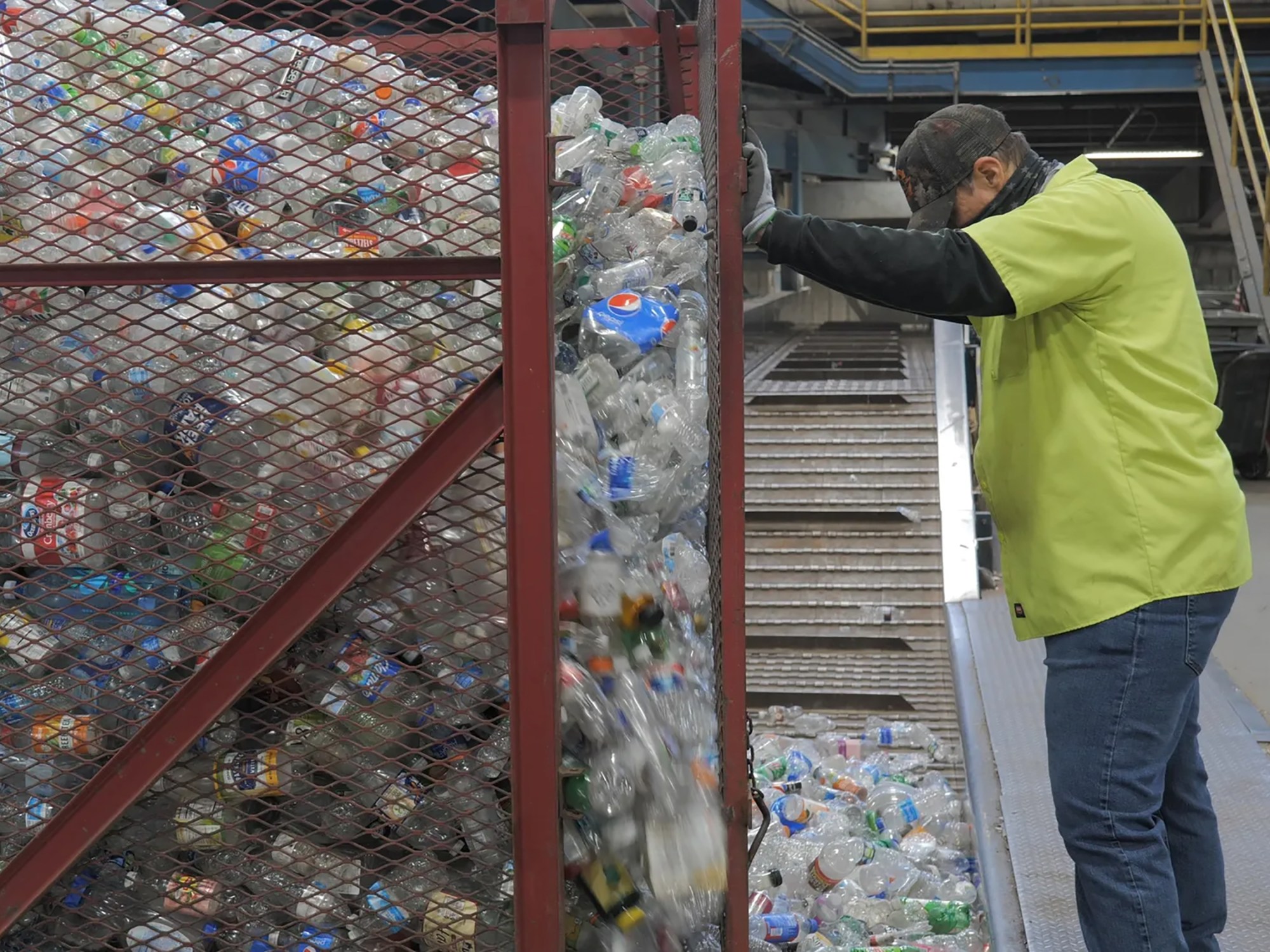
- Film
Docs: Interesting Plastic Earth Spotlights Those Attempting to Solve Crisis Largely of Our Own Creation
In 1967’s The Graduate, Dustin Hoffman’s aimless Benjamin Braddock is plied with a piece of one-word career advice: plastics.
It’s a quip which has long endured, finding its way onto the American Film Institute’s “100 Years… 100 Movie Quotes” list in 2005. But the darkness of its shorthand prescience lands even more squarely these days whenever one sees a mangled soda bottle on the side of a road or ponders the overflowing trash room of their apartment complex.
Plastic Earth, newly released to iTunes and VOD platforms by Gravitas Ventures, aims to unpack our complicated and toxic (quite literally) relationship with the consumer-friendly single-use packaging we just can’t quite seem to quit.
Deftly sidestepping many of the pitfalls of other eco-conscious nonfiction offerings, the movie focuses less on all the reliably damaging things humankind has done to the environment in the name of “progress,” and much more on some of the emergent technologies and companies all across the globe working on tackling and eventually solving the plastic crisis our world is facing. The result is an engaging and informative snapshot of human ingenuity and our species’ boundless capacity for problem-solving.
Co-directed by Janice Overbeck and Jack Winch, Plastic Earth opens with just a bit of a viral video clip of a sea turtle getting a plastic straw removed from one of its nostrils — heartrending stuff. But the movie otherwise mostly eschews easy emotional manipulation derived from footage of the considerable devastation we have wrought on our planet.
Actor Rob Riggle pops up briefly as a host of sorts, providing some much-appreciated levity. “If you put your ear to a plastic bottle, you can actually hear what ocean it’s going to end up in,” he jokes, before pivoting into more serious waters.
With a bit of education about the omnipresence of microplastics and endocrine-disrupting compounds — their connection to Type 2 diabetes, obesity, and even cancer — the film subtly establishes its stakes, underscoring that this isn’t going to be a movie “just” about recycling. After this, Plastic Earth casts its lot largely with science, cycling through dozens of interviews with engineers, researchers, various experts in the field, and all manner of entrepreneurial innovators.
Plenty of other environmental documentaries have done this too, of course, but a fair number of them often tend to overwhelm viewers with either an abundance of research data or call-to-action bullet points. Plastic Earth manages to effectively thread a needle, economically diagnosing a “triple planetary crisis” (air pollution, biodiversity loss, and climate change), and how worldwide plastic production from fossil-based sources intersects with all three elements.
It does this while never losing itself in despair, or slipping off a cliffside into total boredom. In short, the film is very intelligent about its prospective audience — neither wasting valuable time by attempting to convert people who would never watch it (the only exception perhaps being a score which sometimes comes across as intrusive, and artificially goosing) nor bestowing honorary degrees of higher education on self-satisfied eco-warriors.
Mostly, Plastic Earth just leans into the work and (occasionally wryly charismatic) personalities of those tackling these big issues, and in deploying this approach, perhaps inspires younger viewers to be the change they wish to see. The film truly travels the world, too, from rural parts of the United States to Gothenburg, Sweden and everywhere in between.
There’s enough layperson’s science here — enough discussion of the difference between “pile science” and “design science” in mass-scale composting, for example — to definitely leave audiences smarter and more well-informed than before a viewing. Particularly interesting are passages illuminating the many differences (and advances still yet to be made) in so-called bioplastics, made from corn, sugarcane, or other crops, as well as a look at how focusing on proper waste management (which one-third of the world’s population lacks access to) can have enormous consequences for the health of the world’s oceans.
If Plastic Earth sounds like it gives off a bit of a “concerned mother” vibe, that’s quite accurate — and embraced, actually. Overbeck kicks off the film by noting her concern for her four daughters. Admirably, though, in her quest for firsthand insights, she doesn’t attempt to star-cast herself as a one-size-fits-all audience surrogate. Her understandable self-concern and innate curiosity are the seeds from which the project grew, but its overall shape and rhythms (edited by co-director Winch, who also serves as primary cinematographer) extend far beyond the fixations of just one person. They reflect both problems and solutions which are global — highlighting our interconnectedness.